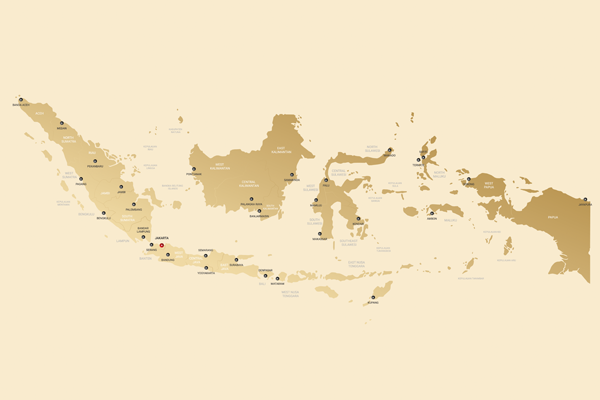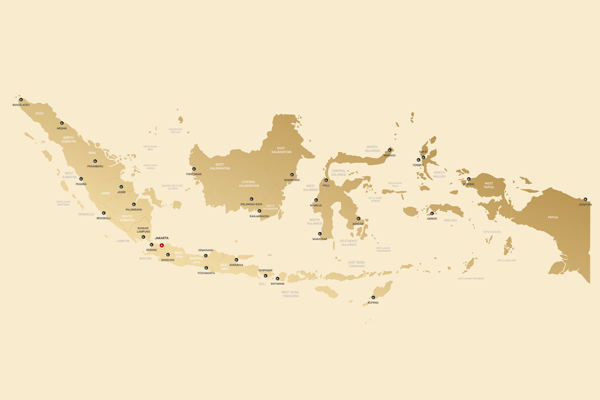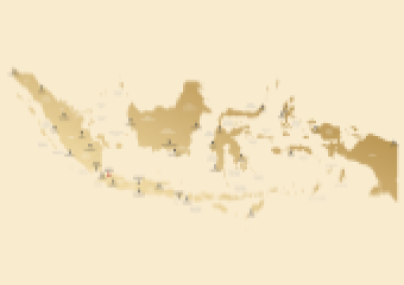
Is Indonesia’s star corruption watchdog too good at its job? A raft of changes that weaken state institution Komisi Pemberantasan Korupsi (KPK) has cast doubt over political promises that the Southeast Asian nation is serious about cracking down on corruption. Tasked with preventing and monitoring corruption and conducting investigations and prosecutions, according to the Centre for Public Impact, the KPK achieved 100 percent conviction rate and boosted its standing on Transparency International’s 2015 Corruption Perception Index — up from 122nd in 2003 to 88th. But in September, legislators amended the KPK’s over-sight, curbing its enforcement abilities drastically, sparking student-led demonstrations.
How does the new KPK regime measure up?
There are several differences between the KPK watchdog in its original form and the revised version. Now included as part of the executive branch, the status of the watchdog has been changed, leaving its abilities to manage its human resources restricted as its employees are now part of the Civil Servant Corps.
The watchdog’s investigation and prosecution powers have also been overhauled. While it still has the authority to carry out investigations and prosecution in cases involving loss of 1 billion rupiah ($71,000) it no longer has the authority to investigate and prosecute cases that attract public outcry. But the changes go even deeper.
Defrizal Djamaris, managing partner of Kudri & Djamaris, says that Article 12A of the legislation eradicates KPK authority further in a number of areas, including its ability to request information from banks or other financial institutions pertaining to those accused. It may not instruct banks or other financial institutions to freeze accounts or instruct employers to suspend suspects. It also loses its ability to request related agencies make arrests, search, or confiscate evidence overseas.
Additionally, the new KPK law has brought about the intro-duction of a Supervisory Board, which serves to manage and approve search and confiscation requests and to establish a Code of Ethics of Commissioner and an officer to evaluate the performance of KPK Commissioner and Officer, Djamaris says.
There is also a new regulation around the watchdog’s ability to wiretap communications during investigations. “Such regulation requires KPK to obtain written approval from the Supervisory Board within 24 hours. The wire-tapping, subject to approval, can be conducted up for six months and extendable once with the same amount of time,” Djamaris explains.
What impact is the weakening of KPK likely to have on the market?
President Joko “Jokowi” Widodo’s second presidential term comes with high expectations from his constituents. “One of the main visions of President Joko Widodo’s second presidential term is to push and attract more foreign investment into our economy, continuing what he already achieved during his first term. While it has positive benefits to Indonesia’s economy, attracting more investment should be accompanied by a strong legal protection,” Djamaris says.
While courting investment has been a top priority for Jokowi, economists warn that corruption may flourish under these new conditions — which could cool international investment. But Djamaris says the optics of these changes may be in line with Jokowi’s goals.
“The new amendment of KPK law might be seen as an effort to furnish legal protection to market players to attract more investors. This amendment is likely enacted to continue the government’s commitment to polishing the investment climate, as over the last five years, the Corruption Perception Index published by Transparency International shows that Indonesia has managed to show improvement.”
“It also shows that while such improvement is produced by various factors, the score will definitely be higher if corruption in Indonesia can be eradicated,” Djamaris notes.
What else should businesses and investors be aware of?
While the amendments to the law may be a move to court foreign investment, members of Indonesia’s Institute for Development of Economics and Finance expressed their concerns about a lack of guarantee by the government to extinguish corruption, local media reported.
And, from a legal perspective, further provisions are recommended. “While we appreciate the government effort to improve and enhance KPK ability to combat corruption, we think that several provisions of the new KPK law need to be considered especially after the introduction of a new body to supervise KPK activities,” Djamaris says. “As we all know, KPK is an independent agency that is immune to any interference from third parties. This special nature is a key factor that makes KPK able to get its job done independently, which of course contributes to Indonesia’s efforts to eradicate corruption and gives legal protection and legal certainty, especially to business and investment.”
In the meantime, carefully monitoring the situation is critical. “We think that the introduction of such supervisory body is something that needs to be carefully monitored by the wider public. We are concerned that it has potential to reduce KPK independence,” Djamaris says.
To contact the editorial team, please email ALBEditor@thomsonreuters.com.

